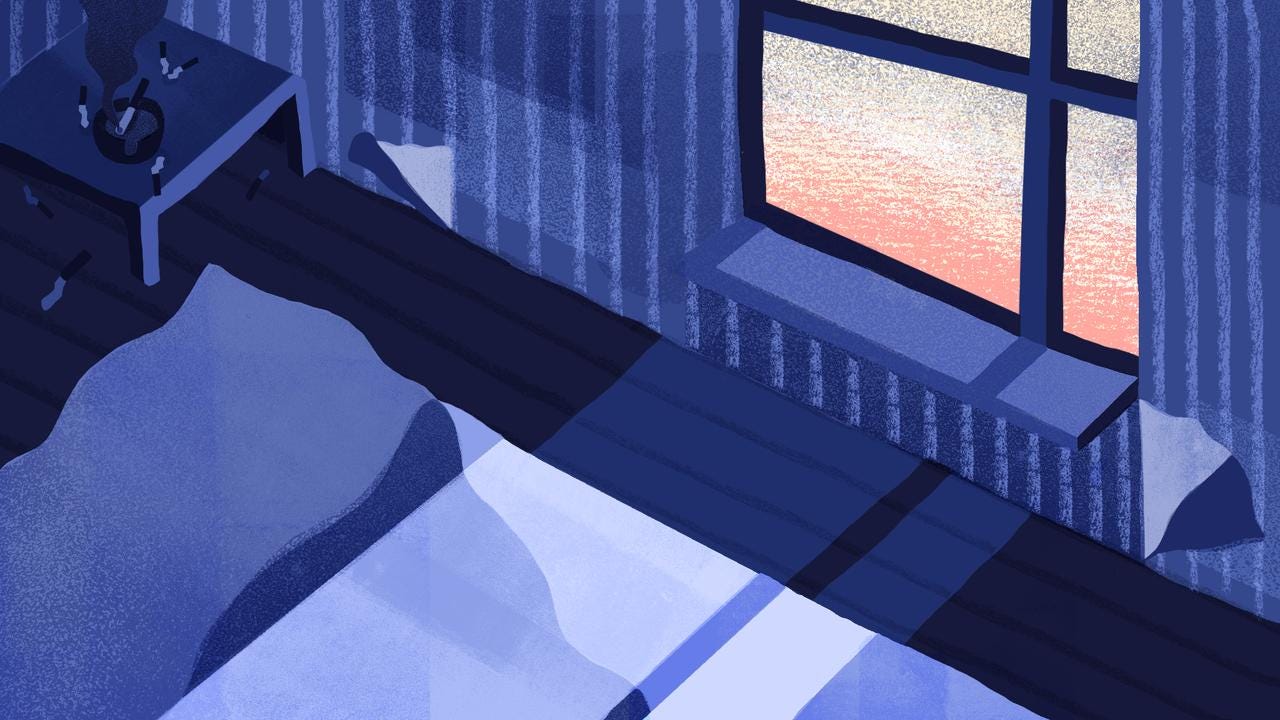Angel Dust and Elephant Shoes
After a troubled youth and a fatal shooting, a revitalized ex-con reconnects with the love of his life, but their blissful second chance is destined for disaster.

Illustration by Beth Walrund
It started going sideways with the angel dust, which she kept hidden in the back of the freezer, in a magnetized flat round tin, behind a tub of plain vanilla ice cream, in her plain suburban home.
Jesse and I had found each other six weeks earlier on Facebook, after twenty-five years. We were old and dear friends; thirteen when we first met in the linoleum-lined hallways of Mark Twain junior high in Yonkers, New York. She was my Patti Smith and my Chrissie Hynde, rock-star babe burning with rage in tight jeans and a leather jacket. I loved her at first sight — but I kept it to myself, as I did with most things in those days. She never knew.
There were seven or eight of us who were always together, it seemed, throughout our entire teenage years. All of us were the self-outcast children of sexual abuse and violence. We sought solace and companionship in each other and in the things we did amongst ourselves — namely heavy metal, punk rock, drugs and sex, in tha…
Keep reading with a 7-day free trial
Subscribe to Narratively to keep reading this post and get 7 days of free access to the full post archives.



